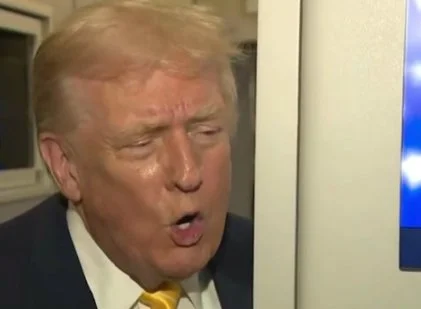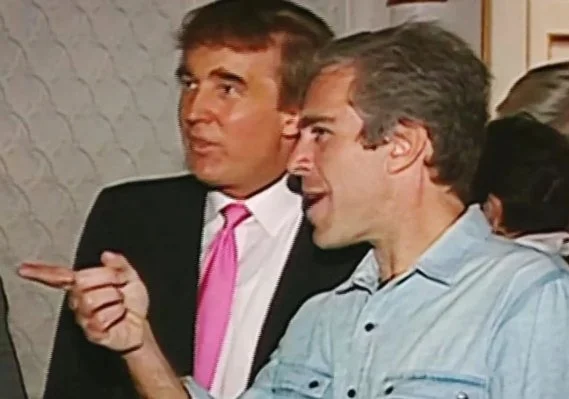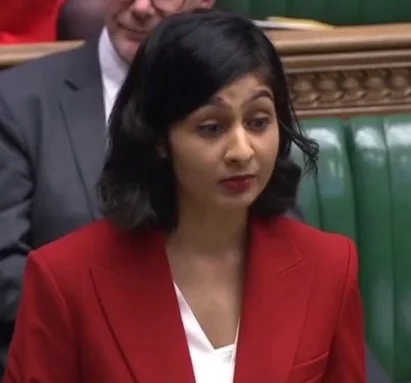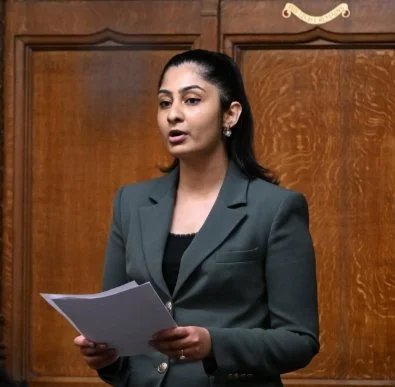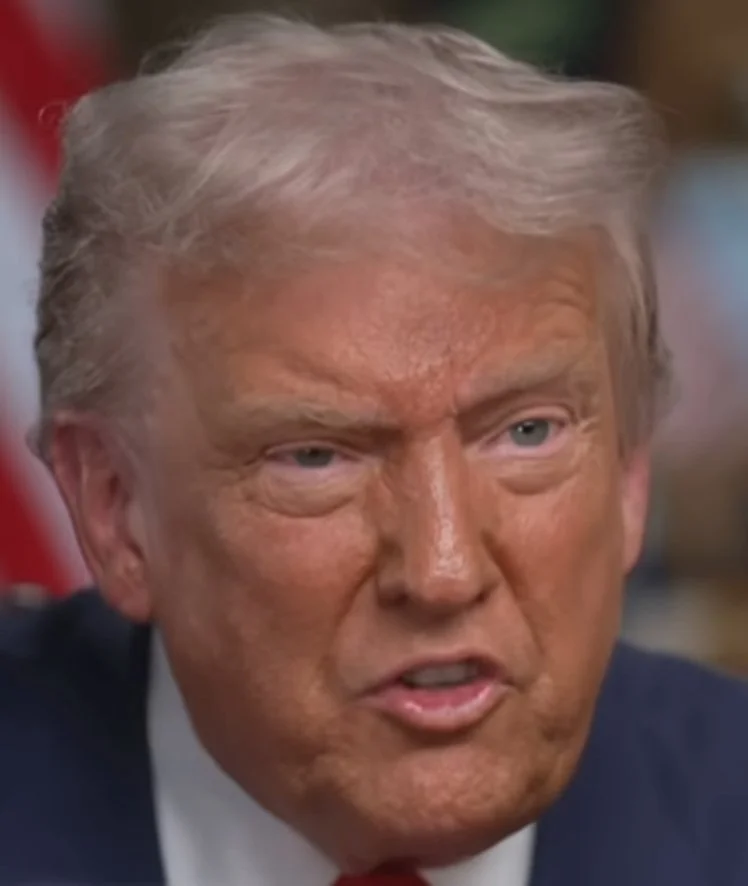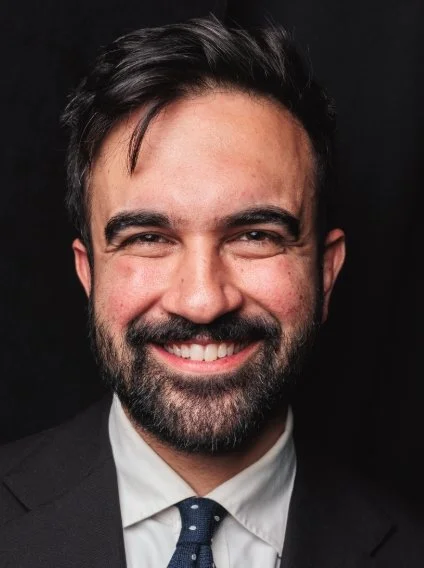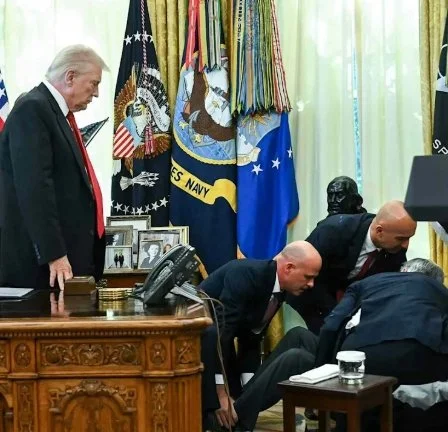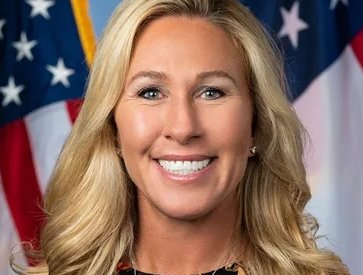Analysis of the Ghislaine Maxwell–Jeffrey Epstein–Donald Trump Nexus
This report provides a multi-dimensional analysis of the evolving nexus between Ghislaine Maxwell, Jeffrey Epstein, and Donald Trump, focusing on recent developments from May to July 2025. It chronicles key events, including Maxwell's offer to testify before Congress, the Department of Justice (DOJ) and FBI's "case closed" declaration regarding Epstein's "client list," and the ensuing MAGA backlash. The analysis delves into the behavioral signals of Maxwell's assertive readiness to testify and Trump's oscillating public messaging. Furthermore, it dissects the strategic incentives and psychological profiles of both Maxwell and Trump, examining Maxwell's risk calculus in leveraging information and Trump's motives to control the narrative. The report forecasts probable paths for Maxwell and Trump's likely responses, assessing expected outcomes and potential wild cards within the context of upcoming political and legal milestones.
I. Introduction: The Intertwined Nexus
The enduring controversy surrounding the Jeffrey Epstein network, involving figures like Ghislaine Maxwell and generating persistent speculation about powerful associates, continues to unfold with significant legal, political, and psychological dimensions. This intricate web of relationships and events has been reignited by recent developments, particularly Ghislaine Maxwell's unexpected offer to testify before Congress and the Department of Justice's (DOJ) definitive pronouncements regarding the Epstein investigation. These occurrences have intensified public interest and internal political friction, necessitating a comprehensive and forward-looking examination. This analysis applies a multi-dimensional framework to understand the complex interdependencies between legal proceedings, political pressures, and the psychological motivations of key figures, offering a detailed perspective on the current state and probable future trajectories of this high-profile nexus.
II. Chronicle of Key Developments (May – July 2025)
This section details the significant events that have transpired within the specified timeframe, providing essential context and initial implications for each development.
Ghislaine Maxwell's Offer to Testify Before Congress
Ghislaine Maxwell, currently incarcerated and serving a 20-year sentence for child sex trafficking, has expressed a willingness to testify before the U.S. Congress. This offer, which emerged around July 14, 2025, centers on revealing "Jeffrey Epstein's secrets" and his purported "client list". Sources close to Maxwell indicate her strong desire to cooperate, stating she is "more than happy to sit before Congress and tell her story" and "would welcome the chance". It is noteworthy that, despite her central role in the Epstein scandal and her conviction in 2022, the U.S. government had never previously requested her testimony. This offer directly challenges the official narrative of a closed investigation and the absence of a client list, positioning Maxwell as a potentially crucial, albeit controversial, source of information. The timing of her offer also coincides with her ongoing appeal to the U.S. Supreme Court, where the government was scheduled to submit its response to her plea on July 14, 2025.
Maxwell's assertive offer to testify, particularly following the DOJ's "case closed" pronouncement, represents a calculated maneuver to gain leverage. Her concurrent Supreme Court appeal, where she argues for protection under Epstein's 2007 Non-Prosecution Agreement (NPA), suggests a clear desire for legal relief. By offering to "tell her story" to Congress, she implicitly threatens to expose information that could embarrass powerful figures or contradict the official narrative, thereby creating pressure for a more favorable outcome in her appeal or even a form of clemency, even though clemency is not explicitly stated as her motivation. A convicted individual serving a lengthy prison sentence would naturally seek avenues for relief, and this offer, framed with apparent "happiness" , could be a strategic performance designed to signal confidence in her potential disclosures, thereby increasing the perceived value of her information and improving her legal position.
The public discourse, as evidenced by social media predictions of Maxwell's "suicide" , highlights a pervasive public distrust and belief in a cover-up surrounding the Epstein case. Her offer to testify resonates strongly with this sentiment, placing immense public pressure on Congress to hear her out, regardless of the DOJ's "case closed" stance. This dynamic creates a direct political challenge to the administration's narrative. If Congress accedes to her request, it establishes a platform for information that could directly undermine the recent pronouncements by the DOJ and FBI. This demonstrates how public skepticism can influence political pressure, which, in turn, may impact legal processes.
DOJ and FBI Statements: "No Client List" and "Case Closed"
On July 7, 2025, the Department of Justice and the FBI released a memo stating that their review found "no evidence that Jeffrey Epstein kept a 'client list' or blackmailed powerful figures". The review further concluded that Epstein died by suicide in August 2019, explicitly dismissing claims of murder. The memo also declared that "no further disclosure would be appropriate or warranted," citing reasons such as victim protection and the graphic nature of some material. Notably, this two-page memo was not signed by any individual official.
This official stance represents a significant reversal from earlier assurances made by prominent figures within the Trump administration. Attorney General Pam Bondi, for instance, had previously intimated on Fox News that a "client list" was "sitting on my desk right now to review". White House Press Secretary Karoline Leavitt later attempted to clarify Bondi's remarks, stating she was referring to "the entirety of all of the paperwork" related to Epstein. Similarly, FBI Director Kash Patel and Deputy Director Dan Bongino had also made public statements about a "client list" before assuming their current roles in the administration.
The DOJ/FBI's definitive "no client list" and "case closed" declaration, especially after high-profile officials had publicly suggested otherwise, has significantly eroded public trust, particularly among the MAGA base. This perceived reversal fuels existing "Deep State" conspiracy theories, reinforcing the belief that powerful elites are being protected and that the government is actively concealing information. The absence of individual signatures on the memo , while potentially a bureaucratic norm, is interpreted by a skeptical public as a lack of accountability, further cementing the "cover-up" narrative. This direct cause-and-effect relationship between contradictory official statements and the reinforcement of anti-establishment sentiment highlights a challenge in managing public perception.
The administration's "walk-back" on the "client list" creates significant political vulnerability for President Trump, as it alienates a core segment of his base. This external pressure exacerbates existing internal friction within the White House and DOJ, particularly between Attorney General Bondi and FBI Deputy Director Bongino. The attempt to control the narrative by declaring the case closed has, in effect, backfired, generating a new political crisis for the administration rather than resolving the Epstein issue. This demonstrates a clear feedback loop where external political pressure directly contributes to internal administrative discord.
MAGA Backlash and Public Discontent
The DOJ/FBI's memo sparked "swift and brutal" anger from President Trump's "Make America Great Again" movement. Supporters, including prominent figures like Alex Jones and Laura Loomer, openly accused the administration of participating in a "cover-up" and misleading the base. Elon Musk also publicly challenged President Trump to "release the files as promised".
While President Trump largely avoided direct blame for the memo's content, the fury was primarily directed at Attorney General Pam Bondi, who faced calls for resignation, as well as FBI Director Kash Patel and Deputy Director Dan Bongino.
President Trump's response to the backlash has been characterized by a mix of exasperation and deflection. When questioned about Epstein, he appeared frustrated, asking, "Are you still talking about Jeffrey Epstein? Are people still talking about this guy, this creep? That is unbelievable". He later used his Truth Social platform to attempt to quell the infighting within his base. In a lengthy post, he disparaged those focused on Epstein, redirecting their attention towards "Obama, Crooked Hillary, Comey, Brennan and the losers and criminals of the Biden administration," whom he blamed for "creating the Epstein Files". He also expressed strong public support for Attorney General Bondi, stating, "LET PAM BONDI DO HER JOB — SHE’S GREAT!".
The Trump administration, through figures like Pam Bondi, initially fueled "client list" conspiracy theories, possibly for political gain. The subsequent official denial by the DOJ and FBI represents a significant political miscalculation. This "180-degree turn" has effectively turned the weaponized narrative against the administration itself, demonstrating the inherent risk in leveraging unsubstantiated claims. Such claims, once unleashed, can become uncontrollable and erode the loyalty of one's own base when the promised "truth" does not materialize. This situation exemplifies how a political strategy can backfire, with the very narrative used to rally support becoming a source of internal rebellion.
President Trump's public messaging exhibits an oscillation between dismissing the Epstein issue and deflecting blame, primarily onto "the Left". This approach serves as a strategic ambiguity. By simultaneously minimizing the issue's importance for a general audience and framing it as a political attack from opponents for his base, he attempts to control the narrative for different segments of the public. This allows him to avoid direct engagement with the substance of the allegations while maintaining a consistent "victim" narrative, demonstrating a sophisticated, albeit manipulative, approach to media and public perception management. His strong defense of Pam Bondi and his call for the MAGA movement to end infighting further indicate an effort to reassert control over his base's narrative and redirect their anger away from his administration and towards political opponents. This behavior suggests a strategic pivot designed to minimize political damage and maintain internal party cohesion.
Trump's Past Consideration of Pardoning Maxwell (2020)
Biographer Michael Wolff reported that President Trump "weighed pardoning Ghislaine Maxwell" in July 2020, shortly after her arrest. This consideration was reportedly driven by a deep concern that Maxwell "would spill secrets about his decade-long friendship with convicted child sex offender Jeffrey Epstein". Epstein himself had claimed to Wolff, "I was Donald's closest friend for 10 years".
President Trump's consideration of pardoning Maxwell reveals a deep-seated concern about potential disclosures linking him to Epstein's activities. This suggests a proactive, preemptive damage control strategy aimed at suppressing potentially damaging information that could emerge from Maxwell's testimony. The motivation behind this consideration was not clemency for justice, but rather self-preservation and control over the flow of information. The use of a powerful executive tool like a pardon, specifically to prevent "spilling secrets" , directly implies a desire to prevent information from becoming public, indicating a clear strategic incentive to suppress information via executive power.
The fact that President Trump considered a pardon in 2020 implies an enduring vulnerability related to his past association with Epstein. This historical context informs the current dynamic: Maxwell's recent offer to testify could reactivate Trump's past concerns. This creates a game-theoretic scenario where Maxwell holds potential leverage over Trump, and Trump must carefully calculate the risks and benefits of various responses, such as ignoring her offer, discrediting her, or engaging with her testimony. If President Trump was worried about Maxwell's disclosures years ago, those concerns would likely persist, especially now that she is actively offering to testify. This places Maxwell in a position to potentially influence Trump's actions, as his strategic aim is to minimize political damage.
Internal White House Friction: FBI Deputy Director Bongino’s Possible Resignation
A significant clash has occurred within the Trump administration, specifically between Attorney General Pam Bondi and FBI Deputy Director Dan Bongino, concerning the public rollout of the Epstein review. Reports indicate that Bongino failed to show up to work on Friday, July 11, 2025, and was "weighing whether to resign" from his position. Sources suggest that Bongino confronted Bondi directly, taking her "to task for overpromising and failing to deliver" on releasing further documents related to the Epstein case. Bongino reportedly stated, "It's me or her".
In response to these reports, President Trump publicly supported Bongino, describing him as "a very good guy" and stating that he believes the deputy director is "in good shape" and "staying at the FBI for now". This public backing followed Trump's earlier posts expressing support for Bondi. Deputy Attorney General Todd Blanche also publicly affirmed on X that both FBI and DOJ leadership had signed off on the memo, denying "any daylight" between them regarding its composition and release.
Dan Bongino, appointed in late February 2025, has a history as a conservative commentator who frequently criticized the FBI, even calling it "irredeemably corrupt" and baselessly suggesting its involvement in various conspiracies. He had previously advocated for "cleaning house" at the FBI.
The friction between Bondi and Bongino, alongside the broader MAGA backlash, reveals a deep ideological schism within the Trump administration and its base concerning the "Deep State" narrative. Bongino, with his background as a staunch critic of the very institution he now serves , likely felt compelled to deliver on the promise of "smoking gun" Epstein files to maintain credibility with the base he represents. Bondi's perceived failure to produce such revelations, therefore, is not merely a policy disagreement but a perceived betrayal of a core ideological tenet for figures like Bongino and the MAGA movement. This dynamic points to the existence of internal loyalty tests within the administration, where allegiance extends not just to President Trump, but also to specific anti-establishment narratives.
President Trump's public support for both Bondi and Bongino demonstrates a delicate balancing act aimed at preventing a high-profile resignation and maintaining a semblance of unity within his law enforcement apparatus. His intervention, coupled with Deputy Attorney General Blanche's denial of "daylight" between the agencies , indicates a strong desire to project control and prevent further public fracturing, especially given the political sensitivity of the Epstein case. A resignation from a high-ranking FBI official like Bongino, particularly over the Epstein files, would be a major blow to the administration's credibility and unity. Trump's public statements are thus aimed at quelling internal rebellion and signaling that the team remains unified despite appearances, illustrating his active role in managing personnel and public perception within the law enforcement agencies under his purview.
Table 1: Key Events Timeline (May-July 2025)
| Date | Event | Key Actors Involved | Source Snippet(s) |
|---|---|---|---|
| July 7, 2025 | DOJ/FBI Memo Released: "No Client List" & "Case Closed" | DOJ, FBI, Pam Bondi, Kash Patel, Dan Bongino, Donald Trump, MAGA Base | |
| July 11, 2025 | Reports of Bongino's Absence & Potential Resignation | Dan Bongino, Pam Bondi, Susie Wiles, Donald Trump, FBI, DOJ | |
| July 12, 2025 | Trump's Truth Social Post Quelling MAGA Infighting & Supporting Bondi | Donald Trump, MAGA Base, Pam Bondi, Kash Patel, Dan Bongino | |
| July 13, 2025 | Trump Publicly Supports Bongino Staying at FBI | Donald Trump, Dan Bongino, FBI | |
| July 14, 2025 | Ghislaine Maxwell Offers to Testify Before Congress | Ghislaine Maxwell, U.S. Congress, Daily Mail | |
| July 14, 2025 | Maxwell's SCOTUS Appeal Response Due | Ghislaine Maxwell, US Supreme Court, US Government |
III. Behavioral Signals and Public Messaging
This section analyzes the discernible patterns in communication and action from both Ghislaine Maxwell and Donald Trump, interpreting their underlying intentions.
Ghislaine Maxwell's Framing of Testimony
Ghislaine Maxwell frames her readiness to testify in an assertive manner, with sources indicating she is "more than happy to sit before Congress and tell her story" and "would welcome the chance". This suggests a proactive and confident posture, rather than a defensive one. Concurrently, Maxwell is pursuing an appeal of her conviction to the U.S. Supreme Court, asserting that she "should have been protected under a 2007 Non-Prosecution Agreement" reached between Epstein and prosecutors. This indicates her legal strategy is intrinsically linked to past agreements and perceived breaches of those agreements. While she does not explicitly state she will provide a "client list," sources close to Maxwell imply her knowledge of "a lot of powerful men involved and a lot of money" in the Epstein files, suggesting a focus on "following the money" rather than a direct client list. Her offer to "speak out about Jeffrey Epstein's secrets, his client list" further implies such knowledge.
Maxwell's assertive framing of her readiness to testify, coupled with her Supreme Court appeal based on the 2007 NPA, suggests a calculated strategy to leverage her perceived knowledge as a bargaining chip. Her expressed "happiness" to testify is likely a performance designed to increase the perceived value of her information, aiming to compel a new negotiation with prosecutors or Congress for legal protection, a reduced sentence, or even clemency, which, while not explicitly sought, is a logical underlying motivation for someone facing a lengthy prison term. This strategic move is intended to shift her legal position. For a convicted individual serving a long sentence, any avenue for relief is pursued. Maxwell's appeal is one such path, and her assertively framed offer to testify is another. If she were genuinely "happy" to testify without a quid pro quo, it would be an unusual stance. Her legal argument regarding the 2007 NPA suggests she believes she was unjustly prosecuted relative to Epstein. Her current offer is a way to create leverage, potentially by exposing information that could lead to a re-evaluation of her case or a deal. The "assertive" framing is a psychological signal of confidence in her position and the value of her potential disclosures.
Maxwell's implicit knowledge of "powerful men involved" and her offer to "disclose Epstein's client list" transforms the concept of a "client list" from a purely legal document into a potent political weapon. By making this offer, she directly challenges the DOJ's "no client list" declaration , potentially forcing a congressional inquiry that could expose politically damaging information, regardless of whether a formal "list" exists. This highlights the political utility of even the
idea of a client list. The DOJ has stated there is no "incriminating client list". Maxwell's offer, however, implies knowledge of "powerful men" and "Epstein's secrets". This creates a direct conflict. Even if she does not produce a literal "list," her testimony about individuals involved could be politically explosive, compelling Congress to investigate further and undermining the administration's narrative. The "client list" becomes a symbol of hidden truths, and Maxwell's offer to reveal it is a direct attack on the perceived cover-up, making it a political rather than solely a legal issue.
Donald Trump's Public Messaging Pattern
President Trump's public messaging pattern on the Epstein-Maxwell case exhibits an oscillation between dismissing the issue as old news and deflecting blame. He appeared "exasperated" when asked about Epstein, questioning, "Are you still talking about Jeffrey Epstein? Are people still talking about this guy, this creep? That is unbelievable". He then shifted blame, posting on Truth Social that "the Left" (specifically naming Obama, Hillary, Comey, Brennan, and the Biden administration) "created the Epstein Files" and are using them to "conned the World". He further accused his "so-called 'friends'" of "playing right into their hands". Simultaneously, President Trump publicly supported Attorney General Pam Bondi, stating she is "doing a FANTASTIC JOB!" and urging his base to "LET PAM BONDI DO HER JOB". He also publicly backed FBI Deputy Director Dan Bongino, describing him as "a very good guy" and "in good shape" despite reports of his potential resignation.
President Trump's oscillation between dismissing the Epstein issue and blaming "the Left" serves as a strategic ambiguity. By simultaneously minimizing the issue's importance for the general public and framing it as a political attack from opponents for his base, he attempts to control the narrative for different audiences. For the general public, it is presented as old news; for his base, it is framed as a "Deep State" hoax. This approach allows him to avoid direct engagement with the substance of the allegations while maintaining a consistent "victim" narrative, demonstrating a sophisticated, albeit manipulative, approach to media and public perception management. If President Trump were to simply dismiss the issue, his base might feel unheard. If he were to fully engage with the details, he might risk personal exposure. His strategy combines both approaches: dismissal for general consumption, but for his core supporters, a reframing of the controversy as a political attack by "the Left". This allows him to maintain his "anti-establishment" appeal while avoiding direct responsibility for the DOJ's "no client list" finding. This is a deliberate tactic to manage disparate expectations and maintain political advantage.
President Trump's public support for Bondi and Bongino, despite the internal friction and MAGA backlash, sends a clear signal to his administration and base that he expects loyalty and unity. By chastising "selfish people" for "trying to hurt" his administration over Epstein , he attempts to enforce internal cohesion and redirect internal criticism outwards. This highlights his emphasis on personal loyalty as a core tenet of his administration, which is essential for maintaining control and implementing his agenda. The MAGA backlash was directed at Bondi, Patel, and Bongino, creating a schism within President Trump's own movement. His public support for these figures, combined with his call to end infighting , is a direct attempt to quell internal rebellion. He frames the internal criticism as an attack on his "perfect Administration" , thereby demanding loyalty and discouraging dissent. This is a critical aspect of his leadership style, where personal loyalty is paramount, and internal conflicts are externalized or suppressed to maintain a unified front.
IV. Psychological Profiles & Strategic Incentives
This section explores the underlying motivations and risk calculations driving the actions of Ghislaine Maxwell and Donald Trump within this complex nexus.
Ghislaine Maxwell: Risk Calculus of Leveraging Client Names vs. Legal Protection
Ghislaine Maxwell is currently serving a 20-year sentence for child sex trafficking, having been convicted in 2021 and sentenced in 2022. Her legal avenues are narrowing; she is appealing her conviction to the U.S. Supreme Court, arguing she "should have been protected under a 2007 Non-Prosecution Agreement" between Epstein and prosecutors. However, the Second Circuit Court of Appeals has already affirmed her conviction, ruling that the NPA did not bind the Southern District of New York. Her willingness to "speak out about Jeffrey Epstein's secrets, his client list" to Congress strongly suggests an incentive to leverage information. This could be driven by a desire for clemency, a pardon, or a reduced sentence, though these specific motivations are not explicitly stated in the provided documents. The chilling social media predictions of her "suicide" underscore the perceived danger and immense value of the information she is believed to possess.
Maxwell's decision to offer Congressional testimony, particularly after exhausting her appeals at the Circuit level and facing a Supreme Court appeal response deadline , indicates this is likely a high-stakes, "last card" play. Her risk calculus involves weighing the potential for legal relief (e.g., clemency, a new plea deal, or a successful Supreme Court appeal based on new pressure) against the inherent dangers of revealing sensitive information, which the public perceives as potentially life-threatening. This suggests a desperate but calculated attempt to alter her long-term legal fate. Maxwell is facing a two-decade prison sentence, and her conviction has been upheld by the appeals court. The Supreme Court appeal represents her final judicial recourse. Offering to testify before Congress, especially about "secrets" and a "client list," is a non-judicial path that could generate significant political pressure. The risk associated with speaking out is considerable, as evidenced by public speculation about her safety. Therefore, she must perceive the potential reward of legal relief as outweighing this significant risk, indicating a desperate but strategically rational move to improve her dire situation.
Maxwell's strategy benefits from the existing public distrust of official narratives, such as the "no client list" declaration from the DOJ and FBI, and from the political divisions within the Trump administration and its base. By offering to testify, she positions herself as a potential truth-teller against a perceived cover-up, thereby aligning with the frustrated MAGA base and potentially forcing congressional action that the executive branch would prefer to avoid. This represents a game-theoretic move to exploit a weakness in the political system. The DOJ's "case closed" announcement has angered the MAGA base, who largely believe in a cover-up. Maxwell, by offering to testify about "secrets" and a "client list," directly appeals to this frustrated segment. She can leverage this public and political pressure to gain a platform. This places the administration in a difficult position: ignore her and face more backlash, or engage and risk new, damaging revelations. Maxwell's move is therefore not just about her legal case, but about exploiting the current political landscape.
Donald Trump: Motives to Suppress or Spin the Narrative; Control Media, Pardon Power, and Congress; Game-Theoretic Subtext
President Trump had a "decade-long friendship" with Jeffrey Epstein , with Epstein himself claiming to be Trump's "closest friend for 10 years". Although Trump was seen with Epstein in public, he reportedly cut ties due to a business dispute and Epstein's treatment of women. Trump has denied visiting Epstein's Virgin Islands home. In 2020, Trump reportedly considered pardoning Maxwell out of fear that she "would spill secrets" about his friendship with Epstein.
His administration's DOJ and FBI recently declared "no client list" and "case closed" in the Epstein investigation, despite prior promises from his Attorney General. Trump has publicly supported both Attorney General Bondi and FBI Deputy Director Bongino amidst internal friction over the issue. He consistently attempts to control the narrative by dismissing the Epstein issue as old news and deflecting blame onto "the Left". Furthermore, his administration has a documented history of using Non-Disclosure Agreements (NDAs) with White House staff to control information flow. The President holds the power to grant pardons and clemency, a tool he has previously considered using in relation to Maxwell. Trump also exerts significant pressure on Congress, as evidenced by his administration's attempts to manage the narrative and his base's expectations.
President Trump's primary motive is self-preservation and maintaining narrative dominance. His past consideration of pardoning Maxwell explicitly links his actions to a fear of her "spilling secrets" about their association. His current public messaging—dismissing the issue, deflecting blame, and accusing "the Left" —is a continuation of this strategy to control the public perception of the Epstein scandal and minimize any personal political liability. This demonstrates a consistent pattern of prioritizing personal image and political standing above all else. President Trump's history with Epstein is a known vulnerability. The fact that he considered a pardon specifically to prevent Maxwell from "spilling secrets" reveals a clear motive: to protect himself from damaging revelations. His current public statements, which pivot from exasperation to blaming political opponents , align with this self-preservation motive. He seeks to control the information flow and public interpretation to ensure the narrative benefits him, or at least does not cause him harm.
President Trump views executive power—including control over the DOJ and FBI, the authority to grant pardons, and influence over congressional narratives—as both a shield against damaging disclosures and a sword to attack political opponents. The DOJ's "no client list" declaration serves as a shield, attempting to definitively close a politically sensitive inquiry. His documented use of loyalty tests and NDAs further reinforces his desire for absolute control over information and personnel, ensuring that his administration acts as a unified front in managing such crises. The DOJ's findings directly benefit President Trump by dismissing the "client list" narrative that could implicate powerful figures, including those he associated with. This illustrates the use of executive branch agencies to manage political risk. His past consideration of a pardon demonstrates his willingness to use direct executive power for similar ends. The broader context of his administration's emphasis on loyalty and NDAs indicates a systemic approach to controlling information and ensuring compliance, illustrating how he leverages all aspects of his presidential authority to achieve his strategic objectives, particularly in sensitive matters like the Epstein case.
V. Action Matrix & Forecasts
This section outlines the most probable strategic paths for Ghislaine Maxwell and Donald Trump, and predicts their likely responses, incorporating an explanation of the feedback loops between legal, political, and psychological factors.
Ghislaine Maxwell's Most Probable Paths
Maxwell's current actions suggest two primary strategic paths:
Negotiate Sealed Congressional Testimony: Given the public uproar and her assertive stance, Maxwell's most probable path is to negotiate a sealed or confidential testimony before a Congressional committee. This approach would allow her to present information without immediate public disclosure, potentially protecting her from perceived threats while still providing significant leverage for her Supreme Court appeal or future clemency considerations. Such a negotiation would likely involve her legal team and relevant Congressional oversight committees. Maxwell's offer to testify is clearly a strategic move. Public testimony carries immense risk, as evidenced by public speculation about her safety. A sealed testimony would mitigate this risk while still providing her with a platform to share information that could be used as leverage. Congress, under pressure from the MAGA base, might be inclined to hear her, but would also seek to control the information flow. This path balances Maxwell's desire for leverage with the need for security and the political realities of Congress.
Leverage DOJ's Framing: Maxwell could strategically leverage the DOJ's "no client list" and "case closed" framing in her Supreme Court appeal. She might argue that if no "client list" exists and the case is truly closed, then her continued incarceration or the severity of her sentence, particularly in light of Epstein's 2007 NPA , is disproportionate or unjust. This would be a legal argument aimed at reducing her sentence or overturning her conviction. The DOJ's statement that there is no "incriminating client list" and that they "did not uncover evidence that could predicate any investigation against uncharged third parties" could be interpreted by Maxwell's legal team as a weakening of the broader "conspiracy" narrative. If there are no other "charged parties" and no "client list," her role could be argued as less significant in the overall scheme, especially when compared to Epstein, who received a lenient deal. This creates an opening for her to argue for leniency or a re-evaluation of her conviction based on the government's own recent statements.
Donald Trump's Likely Responses
President Trump's responses are likely to be multifaceted, aimed at controlling the narrative and minimizing political damage:
Use DOJ to Seal Disclosures/Control Information: President Trump will likely continue to use the DOJ to control the narrative and seal any potentially damaging disclosures. This could involve asserting executive privilege, national security concerns, or victim privacy (as cited in ) to prevent any public release of Maxwell's testimony or related documents. The DOJ's recent memo serves as a precedent for this approach. President Trump's past consideration of pardoning Maxwell to prevent her from "spilling secrets" and his administration's current "no client list" stance demonstrate a clear intent to suppress or control information related to Epstein. If Maxwell testifies, President Trump will likely use all available executive powers, including directing the DOJ, to ensure any information remains under wraps or is heavily redacted, citing legal justifications like victim privacy or national security.
Conditional Clemency: While not explicitly sought by Maxwell, President Trump might consider offering conditional clemency (e.g., a commutation of sentence) in exchange for her silence or for testimony that aligns with the administration's narrative. This would be a high-risk, high-reward strategy, contingent on the perceived threat of her disclosures and the political cost of such an action. President Trump has already considered pardoning Maxwell. This indicates a willingness to use clemency as a tool to manage the Epstein issue. If Maxwell's offer to testify gains traction and poses a significant threat of exposing information that could harm President Trump, a conditional clemency offer might become a viable, albeit politically controversial, option to control the outcome. This represents a direct application of his executive power to mitigate personal political risk.
Political Messaging Pivot: President Trump will continue to pivot his political messaging to deflect blame and rally his base. This will involve intensifying attacks on "the Left" for "creating" or "weaponizing" the Epstein files , while simultaneously urging his supporters to focus on his administration's achievements and "MAKE AMERICA GREAT AGAIN". He will likely continue to defend his Attorney General and FBI leadership. President Trump's current messaging is already designed to deflect and reframe. If Maxwell's testimony becomes a significant issue, he will intensify these efforts. The objective is to control the narrative for his base, ensuring that any revelations are perceived as politically motivated attacks rather than legitimate concerns, thereby maintaining his support and redirecting public attention.
Congressional Pressure: President Trump could exert pressure on Congressional allies to either block Maxwell's testimony, discredit her, or ensure that any hearings are controlled and do not lead to damaging revelations. This could involve leveraging party loyalty and the influence of his administration within the legislative branch. President Trump has significant influence over Republican members of Congress. If Maxwell's testimony becomes a real threat, he will likely activate his political network to either prevent the testimony from happening, or to ensure that if it does, it is conducted in a way that minimizes damage. This could involve pressuring committee chairs, orchestrating counter-narratives, or demanding specific procedural controls.
Feedback Loop – Legal, Political, and Psychological Factors
The Ghislaine Maxwell-Jeffrey Epstein-Donald Trump nexus is characterized by a dynamic interplay of legal, political, and psychological factors. This complex system can be understood as a series of interconnected feedback loops, where developments in one sphere influence and are influenced by the others.
At the center of this dynamic is the Epstein Nexus itself, encompassing Maxwell, Epstein, and Trump.
Within the Legal Sphere, actions include Maxwell's conviction and ongoing appeal, the DOJ and FBI investigations, the "no client list" memo, and potential Congressional subpoenas for testimony. For example, the DOJ's memo (a legal action) directly triggered the MAGA backlash (a political reaction). Maxwell's offer to testify (an action by a legal actor) creates political pressure for Congress to initiate new legal inquiries.
The Political Sphere involves President Trump's administration, the MAGA base, Congressional committees, and the broader context of upcoming elections. President Trump's political directives and public messaging directly influence the actions and public statements of the DOJ and FBI (e.g., the "case closed" memo, and his public support for Bondi and Bongino). Conversely, Congressional pressure can instigate new legal investigations or demand greater transparency from the executive branch.
The Psychological Sphere encompasses public perception, including the prevalence of conspiracy theories and general distrust of official narratives, Maxwell's perceived leverage due to her asserted knowledge, and President Trump's strong need for narrative control and self-preservation. Public distrust and the proliferation of conspiracy theories (psychological factors) directly fuel the MAGA backlash (a political pressure point). In turn, President Trump's messaging (a political action) shapes public perception and loyalty (psychological effects). Legal outcomes, such as court rulings, also influence public trust or distrust. Furthermore, Maxwell's perceived leverage (a psychological factor) directly influences her legal strategy, such as her decision to offer testimony.
These spheres are not isolated but form continuous feedback loops:
Legal developments (e.g., the DOJ memo) can trigger political reactions (e.g., MAGA backlash).
Political pressures (e.g., President Trump's directives) can influence legal processes (e.g., the DOJ's public statements).
Psychological factors (e.g., public distrust) can intensify political demands (e.g., calls for Congressional hearings).
Political actions (e.g., President Trump's messaging) can shape psychological perceptions (e.g., public loyalty or skepticism).
Legal outcomes (e.g., court decisions) can affect psychological states (e.g., public trust or renewed suspicion).
Psychological motivations (e.g., Maxwell's desire for legal relief) can drive legal strategies (e.g., her offer to testify).
This interconnectedness means that a development in one area can ripple through the entire system, creating complex and often unpredictable consequences. Understanding these feedback loops is crucial for anticipating how different scenarios might unfold and for identifying potential points of leverage or vulnerability for all parties involved.
VI. Expected Outcomes & Wild Cards
This section assesses various potential outcomes, ranging from predictable resolutions to unforeseen "wild cards," and evaluates their timing relative to key political and legal milestones.
Scenario Analysis
The evolving nature of the Maxwell-Epstein-Trump nexus presents several plausible scenarios, each with distinct implications:
Explosive Leak: Despite official denials and efforts to control information, an unauthorized leak of sensitive information (e.g., names, videos, documents) related to Epstein's network could occur. This could originate from disgruntled insiders, such as those involved in the friction between FBI Deputy Director Bongino and Attorney General Bondi , or from external actors, including those demanding transparency like Elon Musk , or even Maxwell herself through indirect channels.
Implication: An explosive leak would severely undermine the DOJ's "case closed" narrative, reignite public fury, and compel immediate political and legal repercussions, potentially forcing new investigations or public accountability measures.
Sealed Deal: Maxwell's offer to testify could lead to a sealed deal between her and prosecutors or a Congressional committee. This arrangement would involve her providing information in exchange for some form of legal consideration, such as a sentence reduction, clemency consideration, or enhanced protection. This outcome would prioritize secrecy but inherently acknowledge the significant value and sensitivity of the information she possesses.
Implication: A sealed deal would strongly suggest that Maxwell indeed holds substantial, sensitive information, and that the government prioritizes controlling its public release over full transparency, potentially fueling public speculation about who is being protected.
Congressional Standoff: If Congress attempts to compel Maxwell's public testimony, and the administration resists—for instance, by invoking executive privilege or sealing documents—a constitutional standoff could ensue. This would involve protracted legal challenges and intense political maneuvering between the legislative and executive branches, potentially leading to a crisis of governmental authority.
Implication: A Congressional standoff would escalate the political crisis, potentially leading to prolonged legal battles and further eroding public trust in governmental transparency and accountability.
Legal Reversal (Supreme Court Appeal): Maxwell's appeal to the U.S. Supreme Court could result in a legal reversal of her conviction or a remand for a new trial. This is particularly possible if the Court finds that the 2007 Non-Prosecution Agreement, which she argues should have protected her, is indeed applicable to her case.
Implication: A favorable ruling for Maxwell would have profound legal implications for her case, potentially leading to her release or a significantly reduced sentence, and could set a binding precedent for future cases involving similar non-prosecution agreements.
Silent Resolution: The issue could gradually fade from public discourse without any major revelations or dramatic confrontations. This scenario would involve the administration successfully managing the narrative, Maxwell's offer failing to gain significant traction or being dismissed, and the public's attention shifting to other pressing issues.
Implication: A silent resolution would signify a successful containment strategy by the administration, but it would likely leave many conspiracy theories unresolved and public distrust simmering beneath the surface, potentially resurfacing at a later date.
Timing Assessment
The timing of these potential outcomes is critical, particularly in relation to key political and legal milestones:
Midterms (2026): The proximity to the 2026 midterm elections means that any explosive revelations or perceived cover-ups could significantly impact public sentiment and voter behavior. This could directly affect the balance of power in Congress , as both major political parties would undoubtedly seek to leverage or mitigate the issue for their respective political gains.
Supreme Court Appeal: The Supreme Court's decision regarding Maxwell's appeal, with the government's response due on July 14, 2025 , represents a critical near-term legal milestone. A ruling favorable to Maxwell could dramatically alter her leverage in any potential negotiations and fundamentally shift the overall dynamic of the nexus.
Potential Presidential Reelection Dynamics (2028): The long-term implications of the Epstein nexus, particularly any lingering questions about President Trump's past associations or his administration's handling of the files, could resurface with significant impact during a potential 2028 presidential campaign. Political opponents would likely exploit any unresolved controversies to their advantage.
Table 2: Scenario Analysis and Probability Assessment
| Scenario | Description | Key Drivers/Triggers | Potential Outcomes | Probability | Wild Cards/Unforeseen Factors |
|---|---|---|---|---|---|
| Explosive Leak | Unauthorized release of sensitive Epstein-related information. | Internal dissent (e.g., Bongino friction), external actors (e.g., Elon Musk), Maxwell's indirect channels. | Undermines official narrative, reignites public fury, forces new investigations. | Medium | Unforeseen whistleblower, a new lawsuit unsealing documents. |
| Sealed Deal | Maxwell provides information confidentially in exchange for legal consideration. | Maxwell's leverage, government's desire to control information, perceived threat of public testimony. | Acknowledges value of Maxwell's information, maintains secrecy, fuels public speculation. | Medium | Maxwell's perceived value of information changes, political will shifts. |
| Congressional Standoff | Legislative attempts to compel testimony met with executive resistance. | Congressional pressure from MAGA base, administration's desire to suppress information. | Escalates political crisis, prolonged legal battles, further erodes public trust. | High | A major external event overshadows the issue, bipartisan agreement to avoid conflict. |
| Legal Reversal (SCOTUS Appeal) | Supreme Court overturns Maxwell's conviction or remands for new trial. | Court's interpretation of 2007 NPA, procedural irregularities in original trial. | Maxwell's release/reduced sentence, sets legal precedent, alters her leverage. | Low | Unexpected legal arguments, shifts in judicial philosophy. |
| Silent Resolution | Issue gradually fades from public discourse without major revelations. | Administration successfully manages narrative, Maxwell's offer loses traction, public attention shifts. | Successful containment strategy for administration, but public distrust lingers. | Medium | A new high-profile scandal, a significant public figure is unexpectedly named. |
VII. Simply Put
The Ghislaine Maxwell–Jeffrey Epstein–Donald Trump nexus remains a deeply complex and volatile issue, characterized by a continuous interplay of legal battles, intense political pressures, and deeply ingrained public perceptions. The recent developments, including Maxwell's assertive offer to testify and the DOJ's definitive "case closed" pronouncements, have not resolved the controversy but rather intensified the tension between governmental transparency and the desire for information control.
Maxwell's strategic maneuver to offer testimony, particularly in light of her Supreme Court appeal, underscores her calculated effort to leverage perceived knowledge for legal relief. This move exploits existing public distrust and political divisions, positioning her as a potential catalyst for further revelations. Conversely, President Trump's consistent approach of narrative management, characterized by oscillation between dismissal and deflection, and his firm assertion of executive power over law enforcement agencies, demonstrates a clear commitment to self-preservation and maintaining control over the public discourse. The internal friction within his administration, exemplified by the clash between Attorney General Bondi and FBI Deputy Director Bongino, further highlights the challenges of managing loyalty and ideological alignment amidst intense public scrutiny.
The trajectory of this nexus will continue to be shaped by several critical factors that warrant continuous monitoring. The outcome of Maxwell's Supreme Court appeal is a pivotal legal milestone that could profoundly alter her leverage and the overall dynamic. The sustained pressure from the MAGA base, driven by deep-seated beliefs in a "Deep State" cover-up, will continue to influence political actions and public demands for transparency. Finally, President Trump's evolving strategies for narrative management, including his use of executive authority and public messaging, will be crucial in determining how effectively his administration can contain the political fallout and shape the public's understanding of this high-profile and deeply sensitive case. The interplay of these elements ensures that the Epstein nexus will remain a significant point of contention and public fascination for the foreseeable future.
Sources
'Ghislaine Maxwell didn't hang herself next week': Chilling ..., accessed July 14, 2025, https://timesofindia.indiatimes.com/world/us/ghislaine-maxwell-didnt-hang-herself-next-week-chilling-predictions-on-social-media-after-she-says-she-will-disclose-epstein-client-list/articleshow/122443226.cms
Jeffrey Epstein files: Ghislaine Maxwell is ready to reveal the 'truth'; offers to testify before Congress, accessed July 14, 2025, https://timesofindia.indiatimes.com/world/us/jeffrey-epstein-files-ghislaine-maxwell-is-ready-to-reveal-the-truth-offers-to-testify-before-congress/articleshow/122428947.cms
United States v. Maxwell, No. 22-1426 (2d Cir. 2024) - Justia Law, accessed July 14, 2025, https://law.justia.com/cases/federal/appellate-courts/ca2/22-1426/22-1426-2024-09-17.html
Donald Trump Faces MAGA Backlash Over Jeffrey Epstein Files ..., accessed July 14, 2025, https://www.ndtv.com/world-news/donald-trump-faces-maga-backlash-over-jeffrey-epstein-files-reversal-8846611
Justice Department review finds Jeffrey Epstein had no "client list" and died by suicide, accessed July 14, 2025, https://www.cbsnews.com/news/jeffrey-epstein-client-list-died-by-suicide-justice-department-review/
Jeffrey Epstein 'client list' doesn't exist, Justice Department says | AP News, accessed July 14, 2025, https://apnews.com/article/jeffrey-epstein-justice-department-pam-bondi-03fbcd024f631440f7ed62b3c6927db3
Furor over Epstein files sparks clash between Bondi and Bongino at the Justice Department - WWL-TV, accessed July 14, 2025, https://www.wwltv.com/article/news/nation-world/fallout-over-epstein-filespam-bondi-dan-bongino/507-3dedb7e4-2168-40b9-b5d6-41581bca57e6
Trump Shows Who He's Supporting Amid MAGA War Over Pam Bondi - Yahoo News, accessed July 14, 2025, https://news.yahoo.com/trump-shows-supporting-amid-maga-033826431.html
Epstein client list doesn't exist, DOJ says, walking back theory Bondi promoted - PBS, accessed July 14, 2025, https://www.pbs.org/newshour/nation/epstein-client-list-doesnt-exist-doj-says-walking-back-theory-bondi-promoted
WATCH: Trump and Bondi address lingering questions about Jeffrey Epstein files - PBS, accessed July 14, 2025, https://www.pbs.org/newshour/politics/watch-trump-and-bondi-address-lingering-questions-about-jeffrey-epstein-files
Trump administration promises on Jeffrey Epstein case fizzle out, angering some allies, accessed July 14, 2025, https://www.cbc.ca/news/world/trump-justice-department-epstein-controversy-1.7580472
Trump faces growing criticism from his base over Jeffrey Epstein files | PBS News, accessed July 14, 2025, https://www.pbs.org/newshour/show/trump-faces-growing-criticism-from-his-base-over-jeffrey-epstein-files
Trump posts message of support for Bondi amid Epstein probe fallout - CBS News, accessed July 14, 2025, https://www.cbsnews.com/news/trump-bondi-amid-epstein-probe-fallout/
Epstein files row: Is MAGA loyalty slipping away from Trump? Steve Banon's new warning for Republicans, accessed July 14, 2025, https://timesofindia.indiatimes.com/world/us/epstein-files-row-is-maga-loyalty-slipping-away-from-trump-steve-banons-new-warning-for-republicans/articleshow/122414448.cms
MAGA Rakes Kash Patel Over the Coals Over Epstein Denial, accessed July 14, 2025, https://news.yahoo.com/maga-rakes-kash-patel-over-145615495.html
FBI's Dan Bongino stays home from work amid clash over Jeffrey ..., accessed July 14, 2025, https://www.cbsnews.com/news/dan-bongino-fbi-stays-home-from-work-jeffrey-epstein-trump-doj-clash/
Jeffrey Epstein case: Elon Musk targets Donald Trump again; asks US president to 'release the files as promised', accessed July 14, 2025, https://timesofindia.indiatimes.com/world/us/jeffrey-epstein-case-elon-musk-targets-donald-trump-again-asks-us-president-to-release-the-files-as-promised/articleshow/122415593.cms
Opinion: This Is Why I Am Releasing The Epstein-Trump Tapes ..., accessed July 14, 2025, https://news.yahoo.com/opinion-why-am-releasing-epstein-231851928.html
Trump administration review puts more than $180M for Ohio K-12 ..., accessed July 14, 2025, https://news.yahoo.com/trump-administration-review-puts-more-172955650.html
Listen To The Jeffrey Epstein Tapes: 'I Was Donald Trump's Closest Friend', accessed July 14, 2025, https://docs.house.gov/meetings/JU/JU08/20250227/117951/HHRG-119-JU08-20250227-SD006-U6.pdf
Trump Supports Bongino Staying at FBI Amid Epstein Files Fallout ..., accessed July 14, 2025, https://www.newsweek.com/trump-supports-dan-bongino-staying-fbi-epstein-files-fallout-2098436
What to Know About Dan Bongino, Trump's Controversial New FBI Deputy Director, accessed July 14, 2025, https://time.com/7260981/dan-bongino-deputy-director-fbi-biography-controversies-conspiracies/
Acting Ranking Member Lynch Demands Trump Administration Drop New Loyalty Test for Prospective Federal Employees | The Committee on Oversight and Accountability Democrats, accessed July 14, 2025, https://oversightdemocrats.house.gov/news/press-releases/acting-ranking-member-lynch-demands-trump-administration-drop-new-loyalty-test
Trump's transition team will require 'loyalty' if people want to work in White House, accessed July 14, 2025, https://www.independent.co.uk/news/world/americas/us-politics/donald-trump-white-house-loyalty-b2625363.html
Loyalty, Democracy, and the Future of American Politics - The Fulcrum, accessed July 14, 2025, https://thefulcrum.us/ethics-leadership/donald-trump-and-loyalty
Trump's push for executive order loyalty risks undermining the federal workforce and the Constitution, accessed July 14, 2025, https://www.govexec.com/workforce/2025/06/trumps-push-executive-order-loyalty-risks-undermining-federal-workforce-and-constitution/405905/
Jeffrey Epstein Client List Revelation Raises Ghislaine Maxwell Questions - Newsweek, accessed July 14, 2025, https://www.newsweek.com/jeffrey-epstein-client-list-raises-ghislaine-maxwell-questions-2095301
Sources: FBI Deputy Director considers resigning - YouTube, accessed July 14, 2025, https://www.youtube.com/watch?v=mTN5GydOAXo
Southern District of New York | Ghislaine Maxwell Sentenced To 20 Years In Prison For Conspiring With Jeffrey Epstein To Sexually Abuse Minors, accessed July 14, 2025, https://www.justice.gov/usao-sdny/pr/ghislaine-maxwell-sentenced-20-years-prison-conspiring-jeffrey-epstein-sexually-abuse
Alan_Dershowitz - WSLS, accessed July 14, 2025, https://www.wsls.com/topic/Alan_Dershowitz/
These are the four accusers who have testified at Ghislaine Maxwell's trial - CBS News, accessed July 14, 2025, https://www.cbsnews.com/news/ghislaine-maxwell-trial-four-accusers-testify-jeffrey-epstein/
What we've learned from the Ghislaine Maxwell trial | PBS News, accessed July 14, 2025, https://www.pbs.org/newshour/show/what-weve-learned-from-the-ghislaine-maxwell-trial
Nondisclosure Agreements in the Trump White House, accessed July 14, 2025, https://nyujlpp.org/quorum/nondisclosure-agreements-trump-white-house/
Nondisclosure Agreements in the Trump White House - The Cornell Law School First Amendment Clinic, accessed July 14, 2025, https://cornell1a.law.cornell.edu/assets/pdf/case-files/NDA-White-Paper_2020_FINAL.pdf
Trump Wanted White House Staff to Sign Nondisclosure Agreements in His War on Leaks, accessed July 14, 2025, https://www.newsweek.com/trump-wanted-white-house-staff-sign-non-disclosure-agreements-his-war-leaks-850527

